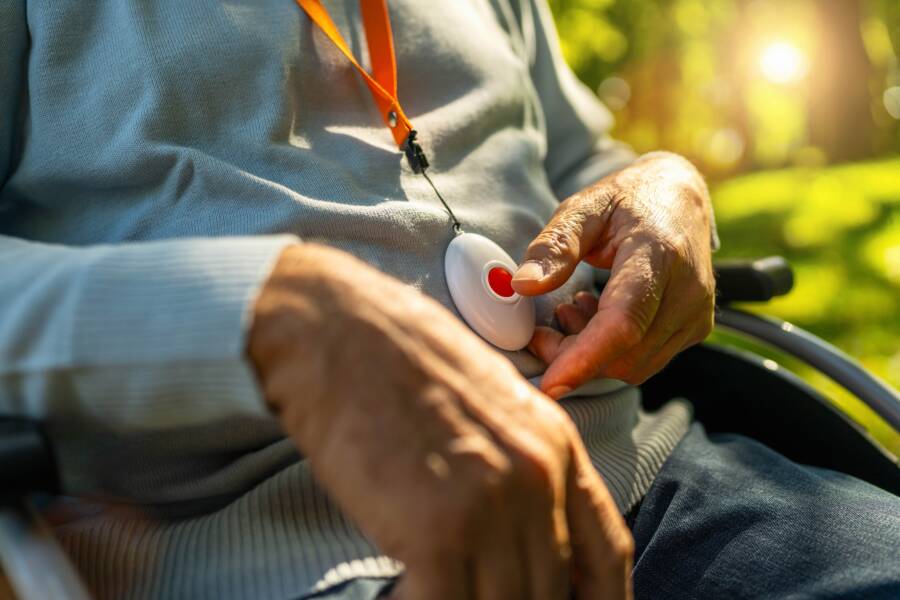You’re pushing 60 or 70 and are concerned with your general health. You don’t visit your doctor that often but like to stay educated about what you can do. Aging looks different for everyone and never goes as planned. We’d all like to live happily ever after, wouldn’t we?
But in the meantime, the closest best thing to that right now is prevention. Whether you’re checking this list for yourself or your loved ones, it is important to pay attention to conditions that could turn into something much worse. Taking some simple, non-invasive medical tests and screens can make a huge difference in catching incipient and subtle health issues.
And if you’re younger or not there yet, it’s the perfect time for you to take a good look at number 13.

What Are the Biggest Health Risks After 60?
As natural as aging is, some can experience it differently than others. Your genes, environment, and lifestyle play the biggest role here. Folks over 60 who have a family history of hereditary diseases should specifically be more proactive towards their health.
Common aging conditions include:
- Risk of cancers (breast, prostate, lung, skin, colorectal, etc.)
- Heart and circulatory diseases (high blood pressure, heart disease, irregular heartbeat)
- Bone and joint issues (osteoporosis, arthritis, muscle loss)
- Hormonal conditions (obesity, diabetes, thyroid dysfunctions)
- Respiratory conditions (lung disease, lung infections)
- Digestive issues (kidney disease, reflux and heartburn, slowed metabolism)
They all sound scary, but some are not the end of the world. You can keep them under control with the right medical treatments. In order to get there, have your doctor run some simple tests and screens for you first.
Keep in mind your own family history and reflect on which of the following can apply to you or your loved ones.
Also, you’ll want to take clear action if you have obesity, smoke regularly, or work/have worked in a high-risk environment with hazardous materials for a long time.
1. Blood pressure
About 70% of Americans will have high blood pressure in their lifetime, with only 1 in 4 of them trying to fix it or being aware of it, as studies showed. If left untreated, abnormal blood pressure can affect the heart and kidney and even lead to strokes. On the bright side, if you detect irregularities in your blood pressure, you can catch other conditions on the list, so it’s a great start.
Some individuals already measure their blood pressure at home. You can grab a blood pressure arm monitor from your nearest chain supermarket or pharmacy. The normal value it should read is somewhere between 120/80 and 130/80 mmHg.
2. Bone density testing
When your bone density goes down, it means your bones become less strong and have a brittle structure. This is called osteoporosis and can affect adults over the age of 65. It is recommended you take a bone density test every 15 years. But if you’re on special medication or have a family history of bone disease, consider taking a bone density test more often.
Women are also more likely to have low bone density due to low levels of estrogen post-menopause.
A more sophisticated version of testing bone density in more detail is a DEXA scan. This can show the level of bone degeneration, risk of fractures, and bone minerals.

3. Cholesterol screening
Genetic factors play the biggest role when it comes to cholesterol levels. Take a basic blood test to avoid clogged arteries, heart disease, and strokes. Modify your diet and do low maintenance exercises like walking and aerobics if you’re at risk for complications.
Talk to your doctor to find out how often you should have your cholesterol screened, as this can range from every 6 years to every few months.
4. Colonoscopy
This test prevents colon cancer by detecting ulcers and polyps in your colon. It can be considered a top 5 most important test to do, with 1 in 24 Americans with an average age of 66 getting diagnosed.
You should get a colonoscopy every 10 years if you’re over 45 years old or more often if there’s a hereditary disposition when it comes to digestive issues.
It is urgent you take a colonoscopy if you notice visible blood in your stool. Another test for fecal occult blood can help catch colon cancer before extension.
5. Hearing testing
Hearing problems are common for approximately 33% of Americans aged between 65 and 74 and nearly 50% aged over 70.
Plus, today’s audio technology, like loud headphones and speakers, makes hearing loss even more prevalent among the upcoming generations. It is recommended you test your hearing every few years after the age of 50.
6. Vision testing
Similarly, vision can be impacted with age. Perfectly healthy eyes can still develop vision conditions like glaucoma and cataracts, especially after the age of 60. Therefore, do take care of your eyes by visiting your optometrist every year. Even if many can neglect this aspect, some vision conditions are correlated with serious diseases like diabetes.
7. HPV testing
There are over 13 million cases of HPV infections each year just in the US. The virus can lead to cervical cancer, throat cancer, and others. Women should get screened for cervical cancer via HPV testing every 3-5 years until the age of 65.
8. Kidney testing
Estimates show that nearly 50% of those aged over 75 have kidney disease to some degree. Kidneys are detrimental for filtering waste out of your bloodstream and are connected to other vital organs. If you’re 60 or over, you should get checked every year – this can be done with simple urine and blood tests.

9. Mammogram
According to specialists, women should get screened for breast cancer starting from age 40. You should take a mammogram every couple of years after the age of 55. Earlier screening is recommended where there’s a family history of breast cancer.
10. Prostate cancer screening
On the other hand, men should get tested for prostate cancer, as chances of getting diagnosed increase with age. Especially if you’re over 65 years old, visit your doctor to book a quick prostate screen.
11. Skin cancer check
While detecting skin cancer may begin with self-checks at home, it is essential you undergo a professional skin cancer check, especially if you’re a male over the age of 50. The dark spots or moles can change with time and with sun exposure.
12. Abdominal aortic aneurysm screening
If you’ve had cases of aortic aneurysm in your family, you should get screened for it as soon as possible. It is recommended you begin the checks regularly from the age of 65.
13. Brain imaging
Neurodegenerative diseases affect brain functions like memory and processing. As brain function goes down, we forget details, faces, places, and even our sense of self. After the age of 65, we’re all at risk for Alzheimer’s disease, dementia, and Parkinson’s disease. The latest figures show that 6.7 million Americans have one brain disease. Actually, with the record low natality rates among the population, 1 in 3 people aged 65 and over will be affected by 2030. That is a huge proportion.
You need to know that dementia, Alzheimer’s, and Parkinson’s cannot be treated. The best cure against brain diseases is good genes and (very) early lifestyle changes. If you know someone in your family who was affected by one of the three conditions, start doing brain exercises like puzzles and memory games. Learning a new language is one of the most efficient and enjoyable ways to delay brain disease.
If you’re interested, you can learn more here: 10 Foods That Protect Your Brain From Alzheimer’s Disease.
Takeaway
Nothing can replace good health. If you’re worried about any point on the list, why not do some digging? In short, be proactive and take these medical tests early.
Make sure you do consult with your doctor to take the most suitable medical tests for you.













